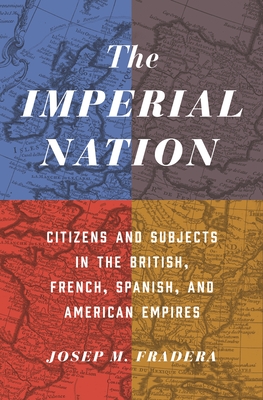Expedite your nonfiction book discovery process with Readara interviews, summaries and recommendations, Broaden your knowledge and gain insights from leading experts and scholars
In-depth, hour-long interviews with notable nonfiction authors, Gain new perspectives and ideas from the writer’s expertise and research, Valuable resource for readers and researchers
Optimize your book discovery process, Four-to eight-page summaries prepared by subject matter experts, Quickly review the book’s central messages and range of content
Books are handpicked covering a wide range of important categories and topics, Selected authors are subject experts, field professionals, or distinguished academics
Our editorial team includes books offering insights, unique views and researched-narratives in categories, Trade shows and book fairs, Book signings and in person author talks,Webinars and online events
Connect with editors and designers,Discover PR & marketing services providers, Source printers and related service providers

The Imperial Nation: Citizens and Subjects in the British, French, Spanish, and American Empires
History > World - General
- Princeton University Press
- Paperback
- 9780691217345
- -
- -
- History > World - General
- (Single Author) Asian American
- English
Readara.com
Book Description
How the legacy of monarchical empires shaped Britain, France, Spain, and the United States as they became liberal entities
Historians view the late eighteenth and early nineteenth centuries as a turning point when imperial monarchies collapsed and modern nations emerged. Treating this pivotal moment as a bridge rather than a break, The Imperial Nation offers a sweeping examination of four of these modern powers--Great Britain, France, Spain, and the United States--and asks how, after the great revolutionary cycle in Europe and America, the history of monarchical empires shaped these new nations. Josep Fradera explores this transition, paying particular attention to the relations between imperial centers and their sovereign territories and the constant and changing distinctions placed between citizens and subjects.
Fradera argues that the essential struggle that lasted from the Seven Years' War to the twentieth century was over the governance of dispersed and varied peoples: each empire tried to ensure domination through subordinate representation or by denying any representation at all. The most common approach echoed Napoleon's special laws, which allowed France to reinstate slavery in its Caribbean possessions. The Spanish and Portuguese constitutions adopted specialness in the 1830s; the United States used comparable guidelines to distinguish between states, territories, and Indian reservations; and the British similarly ruled their dominions and colonies. In all these empires, the mix of indigenous peoples, European-origin populations, slaves and indentured workers, immigrants, and unassimilated social groups led to unequal and hierarchical political relations. Fradera considers not only political and constitutional transformations but also their social underpinnings.
Presenting a fresh perspective on the ways in which nations descended and evolved from and throughout empires, The Imperial Nation highlights the ramifications of this entangled history for the subjects who lived in its shadows.
Author Bio
Modern and Contemporary History professor at Universitat Pompeu Fabra in Barcelona (UPF) since 1995.
He is currently coordinating the History PhD programme from the Humanities Department. He is a Contemporary History doctor from Universitat Autònoma de Barcelona (1983). He teaches subjects on colonial and contemporary History of America; Southeast Asian History; Pre-British and British India; compared colonial systems of the European empires from the Early and Late Modern Periods; on the Master in World History in UPF. In addition, he is an ICREA researcher.
He has been an assistant lecturer in Institute for Advanced Study (Princeton) (1987) and he has also been a guest or visiting lecturer in Harvard (1997, 2000, 2012-2013) and Princeton (2008); Chicago (2009); New York University and École des Hautes Études en Sciences Sociales in Paris (2001).
These are his highlighted last publications:
Gobernar colonias (Península, 1999),
Filipinas, la colonia más peculiar (Las finanzas públicas en la determinación de la política colonial, 1762-1868 (CSIC, 1999),
Colonias para después de un imperio (Bellaterra, 2005);
La nación imperial. Derechos, representación y ciudadanía en los imperios de Gran Bretaña, Francia, España y los Estados Unidos, 1750-1918 (Edhasa, 2015)
The Imperial Nation. Citizens and Subjects in the Empires of Great Britain, France and the United States, (Princeton, 2018).
Source: Universitat Pompeu Fabra
Photo Source: EnricCatala.com
Videos
No Videos
Community reviews
No Community reviews

